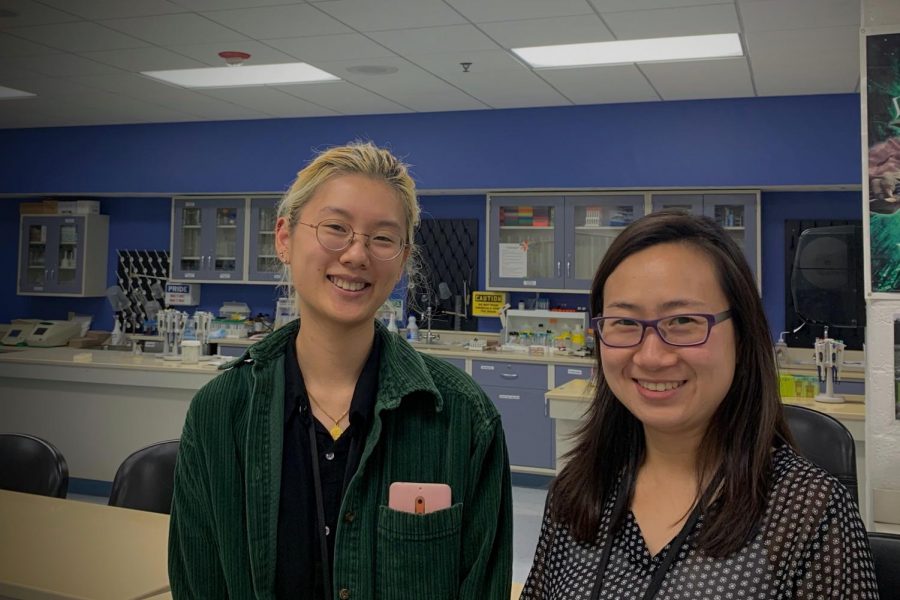With Two New Teachers, Biotech Excites Students
Pictured: This year’s two new biotech teachers.
October 10, 2019
Pei-Yun Chu and Hiroko Kaczmarek are the new faces of the 2019-2020 RSTA Biotechnology program. Ms. Chu grew up in the suburbs of Boston before getting her undergraduate degree in biology at Dartmouth University. After graduating, she pursued her Master’s in education, teaching in Framingham before coming to Cambridge.
Dr. Kaczmarek, Dr. K to her students, earned her doctorate in molecular physiology and began volunteering at a Worcester high school. She had always thought about teaching and once she realized how much she owed to her own highschool science teacher, and found out about an open position at Worcester High School, she decided to apply. After working there for three years, she heard about an opening at CRLS. “I know Cambridge is a very well-respected district, and I wanted to work with students here,” Dr. K shared.
This year is the first that there are two biotech teachers and two classrooms. Ms. Chu teaches biotech Level 1 in a new classroom as well as co-teaching a Biology class. Dr. K teaches another Biotech Level 1 class, as well as the Biotech Level 2 and Level 3 classes.
Although the school year has just started, both Ms. Chu and Dr. K have created a classroom environment where students feel like they can speak up and ask questions.
Aidan Pechet, a sophmore in Biotech Level 1 with Ms. Chu, described how she’s very relatable and easy to get along with. “[Ms. Chu] seems much more in with the times, she’s relatable, she finds my jokes funny—I don’t even find them funny all the time. … She seems great, and easy to get along with,” Pechet said. Pechet also noted that having two biotech teachers creates more opportunities for small classes with one-on-one student-teacher interactions, which is very helpful for many students. Tiber Dalton, also a sophomore, is in Biotech 2 with Dr. K. Dalton described how, although the school year has only just started, it’s clear that they will be doing more labs and going about the whole process of learning about biotech differently than other teachers have in the past. They said, “I’m very excited about the different technique she’s using, because we have to really ask questions. The experimentation is also very interesting, along with analyzing the data afterwards. The teamwork and group prospect of the class is also great.”
Instead of having their students sitting around taking notes for the whole class, Dr. K and Ms. Chu try to include engaging projects and labs to promote interest in a challenging subject, “I think for a lot of students, whether the teacher is engaging or not can be really sort of a make or break kind of deal in whether you pursue that subject,” Ms. Chu shared from her own experience. Dr. K hopes that her students can feel comfortable in a lab, using equipment, and enjoying the experience. She also hopes that her higher-level classes can find an internship at a Biotech company of their choice so that they have the opportunity to transfer their knowledge to a real-world setting. Both teachers have high hopes for what their students will get out of their classes. Ms. Chu hopes that everyone in her class can see the value of the subject matter, regardless of whether they are thinking of pursuing a career in the industry or not. Ms. Chu said, “There are these universal skills that we can learn about how to approach things scientifically—we are just trying to make this meaningful regardless of what anyone’s future path is.”
This piece also appears in our September 2019 print edition.









